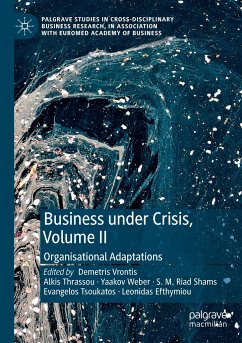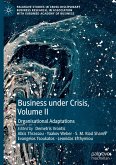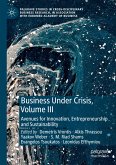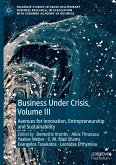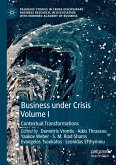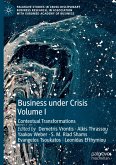Crises present significant challenges for organizations. But, while critical events are inevitable, not every business is sufficiently equipped for when things don't go according to plan. This book focuses on business under crisis conditions, along with organizational responses and adaptation. Adaptation can be seen as a learning process. It encompasses meaningful ways that help companies sustain their viability over the long term. Companies that respond quickly, often achieve more than just surviving. Some organizations will learn from a crisis, develop reactive resilience, and emerge stronger from the period of turbulence. They will be able to explore possibilities and create new patterns of relationships.
Bringing together descriptive and prescriptive research studies, chapters explore adaptation in different sectors, including public health, tourism, garment, Information Technology, high-tech companies, global trade networks, hospitality, security and the social sector. Ultimately, the book covers wide range of topics, linking strategy, entrepreneurship, and leadership to reciprocal organizational adaptations that help us delineate crisis, as well as its interconnections in differing settings.
Bringing together descriptive and prescriptive research studies, chapters explore adaptation in different sectors, including public health, tourism, garment, Information Technology, high-tech companies, global trade networks, hospitality, security and the social sector. Ultimately, the book covers wide range of topics, linking strategy, entrepreneurship, and leadership to reciprocal organizational adaptations that help us delineate crisis, as well as its interconnections in differing settings.

